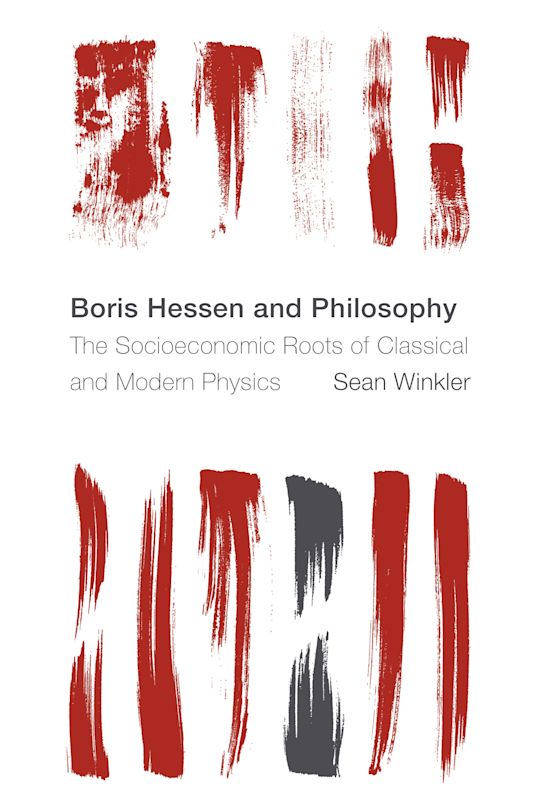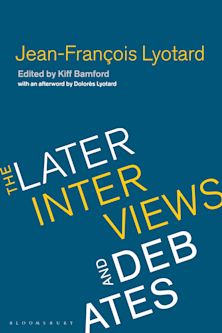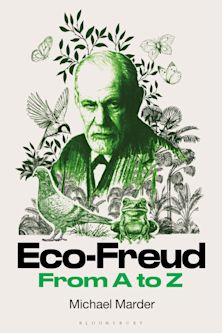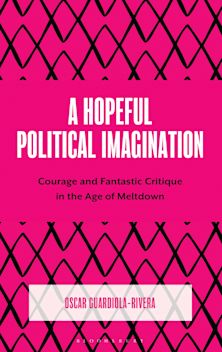- Home
- ACADEMIC
- Philosophy
- Social and Political Philosophy
- Boris Hessen and Philosophy
Boris Hessen and Philosophy
The Socioeconomic Roots of Classical and Modern Physics
Boris Hessen and Philosophy
The Socioeconomic Roots of Classical and Modern Physics
This product is usually dispatched within 1 week
- Delivery and returns info
-
Free US delivery on orders $35 or over
You must sign in to add this item to your wishlist. Please sign in or create an account
Description
In 1931, Soviet philosopher, Boris Hessen presented a paper at the Second International Congress of the History of Science and Technology in London, England. It was a watershed moment, marking the founding of the ‘externalist’ approach to the history and philosophy of science. Five years after this talk, however, Hessen was executed in what became Joseph Stalin’s Great Purge of the 1930s. Nearly a century after his death, we still know all too little about this pioneering figure and his expansive oeuvre. In this book, Sean Winkler provides a reading of Hessen’s philosophy and its unique approach to understanding the relationship between socioeconomic development, technological progress and natural scientific theory. To further encourage the study of Hessen, the book also includes first-time translations of his contributions to the Soviet Encyclopedia. Through a systematic analysis, Winkler reflects upon Hessen’s contribution to the history and philosophy of science of the past and his possible significance in the world today.
Table of Contents
1. Practice and Ideology
2. Idealism and Materialism
3. Modern Physics
4. A Pantheon of Great Ideas
Conclusion
Postscript: Boris Hessen's Entries to the Soviet Encyclopedia
Appendix 1 – “Space,” B.M. Hessen
Appendix 2 – “Ether,” B.M. Hessen
Appendix 3 – “Energy,” B.M. Hessen
Appendix 4 – “Entropy,” B.M. Hessen
Appendix 5 – “The Ergodic Hypothesis,” B.M. Hessen
Appendix 6 – “Einstein” H.M. Müntz and B.M. Hessen
Bibliography
Index
Product details
| Published | Nov 21 2022 |
|---|---|
| Format | Hardback |
| Edition | 1st |
| Extent | 192 |
| ISBN | 9781538147580 |
| Imprint | Rowman & Littlefield Publishers |
| Dimensions | 9 x 6 inches |
| Series | Reframing the Boundaries: Thinking the Political |
| Publisher | Bloomsbury Publishing |
About the contributors
Reviews
-
How many academic papers are still being discussed and debated for nearly a century after they were delivered? Boris Hessen’s 1931 paper was called a “trumpet blast” and echoed through decades of interpretation and misinterpretation. It is great to have a book analysing it in the context of his whole body of work within the larger context of the turbulent debates and events of the times.
Helena Sheehan, Emeritus Professor, Dublin City University
-
Sean Winkler's enquiries integrate the image of Boris Hessen as the initiator of externalist history of science with new vistas on his political epistemology. Winkler's English translation of Hessen's encyclopedia entries on contemporary physics introduces us into an original Marxist evaluation of quantum mechanics and relativity theory.
Pietro Daniel Omodeo, Ca' Foscari University of Venice
-
Even today the early, pre-Stalinist period of Soviet philosophy remains terra incognita for the standard history of ideas. In his book Sean Winkler undertakes some bold incursions in this neglected area and demonstrates its numerous connections with the more familiar territory of modern science and its philosophical reflections. It is a fascinating book that expands our understanding of modern philosophical history.
Boris Groys, Global Distinguished Professor of Russian and Slavic Studies, New York University, and senior research fellow, Karlsruhe University of Arts and Design
-
Sean Winkler's book sheds new light on one of the most important Soviet historians of science and epistemologists. The book reveals a thinker of remarkable consistency, capable of, on the one hand, a sophisticated historical reconstruction of the socio-economic roots of classical physics and, on the other hand, rethinking a dialectic of nature up to the challenges of quantum mechanics and relativity theory.
Vittorio Morfino, associate professor in the history of philosophy, University of Milan-Bicocca
-
Moving nimbly between philosophy, science, and history, Winkler offers a stimulating interdisciplinary analysis of Boris Hessen, a key Soviet philosopher in the Stalinist era. By situating science in a transnational perspective, this profound book demonstrates the overlooked Soviet contribution to the study of science in a social context.
Nigel Raab, professor of Russian history, Loyola Marymount University
-
Sean Winkler’s analysis of Boris Hessen’s philosophy of science provides new insights into the work of a Soviet physicist widely known for his 1931 essay that opened the social study of science. Using rare archival documents, Winkler unravels the complexities of Hessen’s views of materialist ideology, and of Soviet responses to the epistemological controversies raised by twentieth century physics.
Paul Josephson, Colby College

ONLINE RESOURCES
Bloomsbury Collections
This book is available on Bloomsbury Collections where your library has access.


































